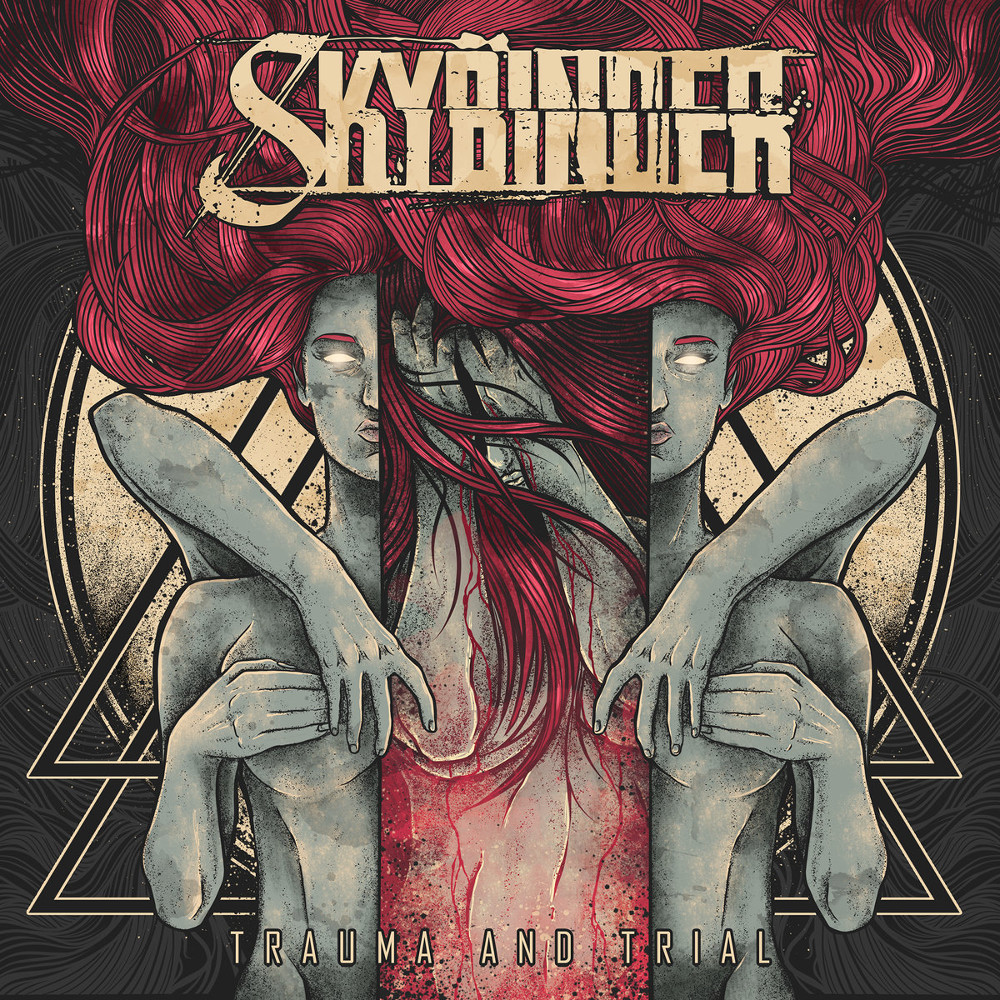 |
Country: Ukraine
Style: Progressive Groove Metal
Rating: 7/10
Release Date: 7 Feb 2025
Sites: Bandcamp | Facebook | Instagram | Official Website | Twitter | Wikipedia | YouTube
I'm doomed to point this out every time I review anything with a predominant metalcore element but I've never been a fan of shouty hardcore vocals. They have a purpose and, when used properly, can meet that purpose, which is primarily to channel aggression. However, in almost all instances, they're an inherently limited vocal technique. If all you want to do is channel aggression, then you aren't very interesting. If you want to do more than that, then you need flexibility. And that's the reason I'm still reviewing Jinjer albums when I avoid most metalcore. They have plenty of that.
Well, OK, I missed their fourth album for some reason, which was 2021's Wallflowers, but the core point stands. And I'm back for their fifth after reviewing their third, Macro. Much of that flexibility comes from the astounding vocal talent of Tatiana Shmailyuk but I have to highlight Eugene Abdukhanov's five string bass too. It's a prominent instrument here, to the degree that often it seems like it's the lead string instrument rather than Roman Ibramkhalilov's downtuned guitar. It's right there at the front of every angry assault but it's also there in quieter moments, like the drop in the second half of Tantrum.
That's not to say that Ibramkhalilov has little to do. He's there throughout, of course, deepening the texture of this music; he merely doesn't get as many moments in the spotlight as your average metal guitarist might. There's some interesting guitarwork going on in Green Serpent, both early with vibrant accompaniment and late with a faux acoustic drop at the end. He gets a solo on Dark Bile, not a particularly expansive solo as they go but one nonetheless. Late in the album, he gets a thrash drive both late on Fast Draw and early on the title track, but also a moment of sassiness to bolster Shmailyuk's teasing clean voice at the beginning of Someone's Daughter.
And back to Shmailyuk. As so many YouTube reactors are finding, she can switch effortlessly from a clean melodic voice to a shouty metalcore voice that also contains a lot of growl. Now, she's wasn't the first female singer to tackle harsh vocals and she's hardly the only one doing it nowadays, but her harsh voice still stands alone. Most of those singers sound like they're female when they sing harsh and a few are indistinguishable from the male equivalent. Shmailyuk somehow sounds like she's male and female, as if she's singing both sides of a duet, especially on Hedonist. Some of that could be a production thing, but she does it live too.
As always, my favourite songs are the ones that really play with these two contrasting sounds and make them work together. For me, Tantrum and Rogue are decent early songs, the latter showing Jinjer's progressive side by playing with tempos, but Hedonist leaps out from between them to be the first highlight and Tumbleweed shows up next to be the second. It opens up doomy, but with a happier and quirkier mood in Shmailyuk's vocals, which are clean for half the song after staying in harsh mode for the whole of Rogue. Her harsh voice in the second half churns well with the music behind here, a sludgy growl rather than a standard shout.
They're both first half songs, as is Green Serpent, which plays nicely with emphasis, and they may remain my favourites. However, the second half doesn't feel lesser. It merely shines more through variety than a standout track or two. Dark Bile isn't Fast Draw and neither of them are Someone's Daughter or Duél. All of them play with the same components—that downtuned guitar and overt bass, those two utterly different vocal approaches—but they end up in different places that keep this album interesting in ways that most metalcore doesn't even dream of.
So Kafka is peaceful until it isn't and it finds its way home in a flurry of Ulasevich's drums and the angriest shout on the album. Dark Bile has a jauntiness to it and even a swing, just as Someone's Daughter has a sassiness to it. It reminded me early on of the YouTube reactor who compared her to Katy Perry during the opening section of Pisces only to have his expectations shattered as she shifted into harsh mode; she doesn't do that here until the second half. And Duél has a fascinating opening to make it feel deep even before it gets going. There's a lot in this song.
And so, once again I find myself enjoying a Jinjer album, even though I'm not a metalcore fan. I'm still listing them as progressive groove metal, because both those aspects constitute major parts of the Jinjer sound, but they're still metalcore to metalcore fans. To me, they show that the anger and aggression of metalcore can be preserved while diversifying the sound and stringing a series of varied tracks together across an album. That they don't truly sound like anyone except Jinjer is a bonus.


















